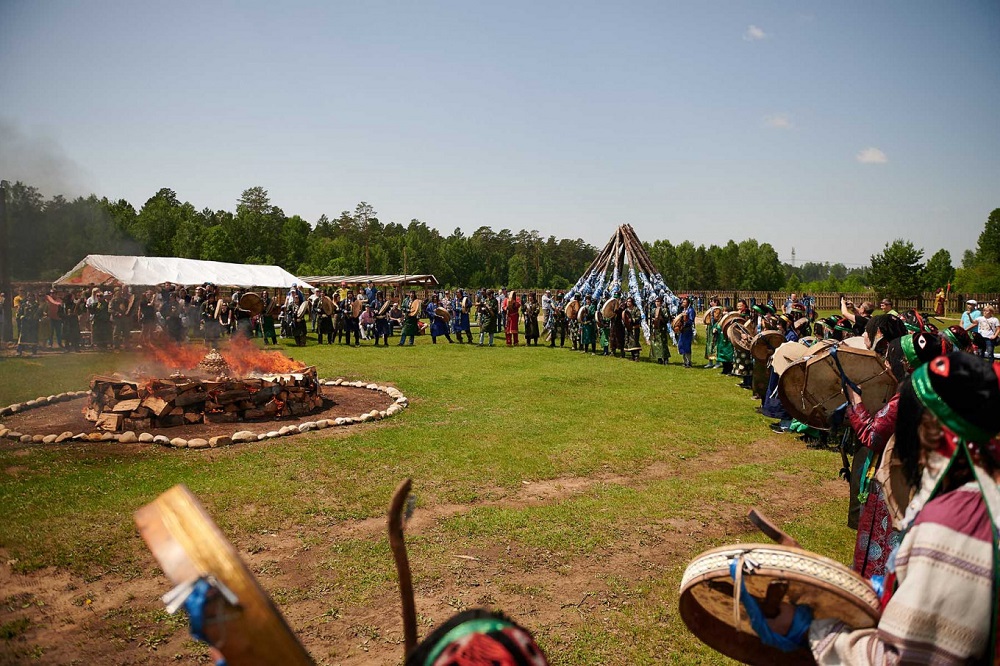By Zakir Hussain
Shaman is called Danyal in Shina( lingua franca of Gilgit Baltistan) , Bitan in Brushaski (third largest spoken language in Gilgit Baltistan), Sumulo also in Shina.
High mountain people in the Western Karakoram of Gilgit Baltistan especially in Gilgit , Hunza , Nagar and Ghizar , posses a Shamanistic tradition centered around Relegio-Magico specialists known as Bitan , Danyal in Brushski language or Sumulo in Shina language. These practioners inhale the smoke of burning juniper branches , to enter into ecstasy.They would dance to a special music , drink blood of fresh slaughtered goats head ( Shati tatoki) this is the very test of a future shaman. ,To enter in to ecstatic trances & converse with super natural beings for health healing & predicting future events. Shamanism , Tengriism was an ancient religion of Mongols , Tibet , Siberia & Al Tai mountains inhabitants & Turco-Mongols of Central Asia Khanates. Now these shaman practices are discouraged in GB & gradually becoming taboo in the society but still a large population is following the cult.
What is meant by a shaman, (Harner, 1982,p. 25, defines shaman as “a man or woman who enters an altered state of consciousness at will to contact and utilize an ordinarily hidden reality in order to acquire knowledge, power, and to help other persons”
A shaman is a person who is a faith healer. It is not so clear is what exactly a shaman is. In fact, shamanism is complex concept of mystic nature with remarkable controversies. On the one hand the shaman has been called “mentally deranged” by some anthropologists like Shamans have ” an accessing the state of consciousness.” (Roger Walsh Irvine, California)
Shamans and shamanism as unique phenomena has been greatly imbued in ancient societies of Karakorum mountain communities of Gilgit Baltistan. In this article I will make an effort to shed light on the concept of shamanism.in a series of articles I will describe the influence of shamanism in the world as a whole in general and in Gilgit Baltistan in particular. ‘In Tungus language this term (saman) refers to persons of both sexes who have mastered spirits, who at their will call introduce these spirits into themselves and use their power over the spirits in their own interests, particularly helping other people, who suffer from the spirits; in such a capacity they may possess a complex of special methods for dealing with the spirits’.
So a broad definition of shamanism may be phrased as any practitioners who enter controlled altered states of consciousness no matter which particular states these may be: shaman’s threefold world system out of one’s self or one’s normal state and entering a state of intensified or heightened feeling.” This definition of ecstasy as “being taken out of one’s self or one’s normal state” is, the broader definition of shamanism
, what happens is that shamans in their ecstatic state, experience themselves, or their soul/spirit,’ flying through space and traveling to either other worlds or distant parts of this world’. In other words, “the shaman specializes in, a trance during which his souls is believed to, leaves his body, and ascend to the sky or descends to the underworld” (Eliade, 1964, p. 5). These flights reflect the shamanic cosmology which comprises a three-tiered universe of upper, middle, and lower worlds, the middle one corresponding to our earth. The shaman ranges throughout this threefold world system in order to learn, obtain power, or to diagnose and treat those who come for help and healing. During these journeys shamans may experience themselves exploring other worlds, meeting otherworldly people, animals or spirits, seeing the cause. Shamans are known for their art regarding cure of a patient’s illness, or interceding with friendly or demonic forces. ‘Shamanism can be understood as a religious tradition. Albeit, it can also be seen as a medical, mystical, and psychotherapeutic tradition as well).
In summary, shamanism might be defined as a family of traditions whose practitioners focus on voluntarily entering altered states of consciousness in which they experience themselves, or their spirit(s), traveling to other realms at will and interacting with other entities in order to serve their community.
The writer is a Civil servant hailing from Gilgit and Baltistan.

















































